Hey there! This post contains affiliate links. Using my links means I earn a commission, which helps me create more rad content. More on affiliates here.
I have a confession. I am a chronic “Interrupter.”
I don’t mean to be. I am really interested in what other people have to say, and I’ll ask 21+ questions to anyone willing to share.
Buuuuuut in my excitement of hearing what the other person has to say, or in my excitement to share, I interrupt.
I talk over people. I interject. I bounce in my seat waiting for MY TURN TO SPEAK.
Not-so-shockingly, this type of communication doesn’t lead to, you know, actual communication.
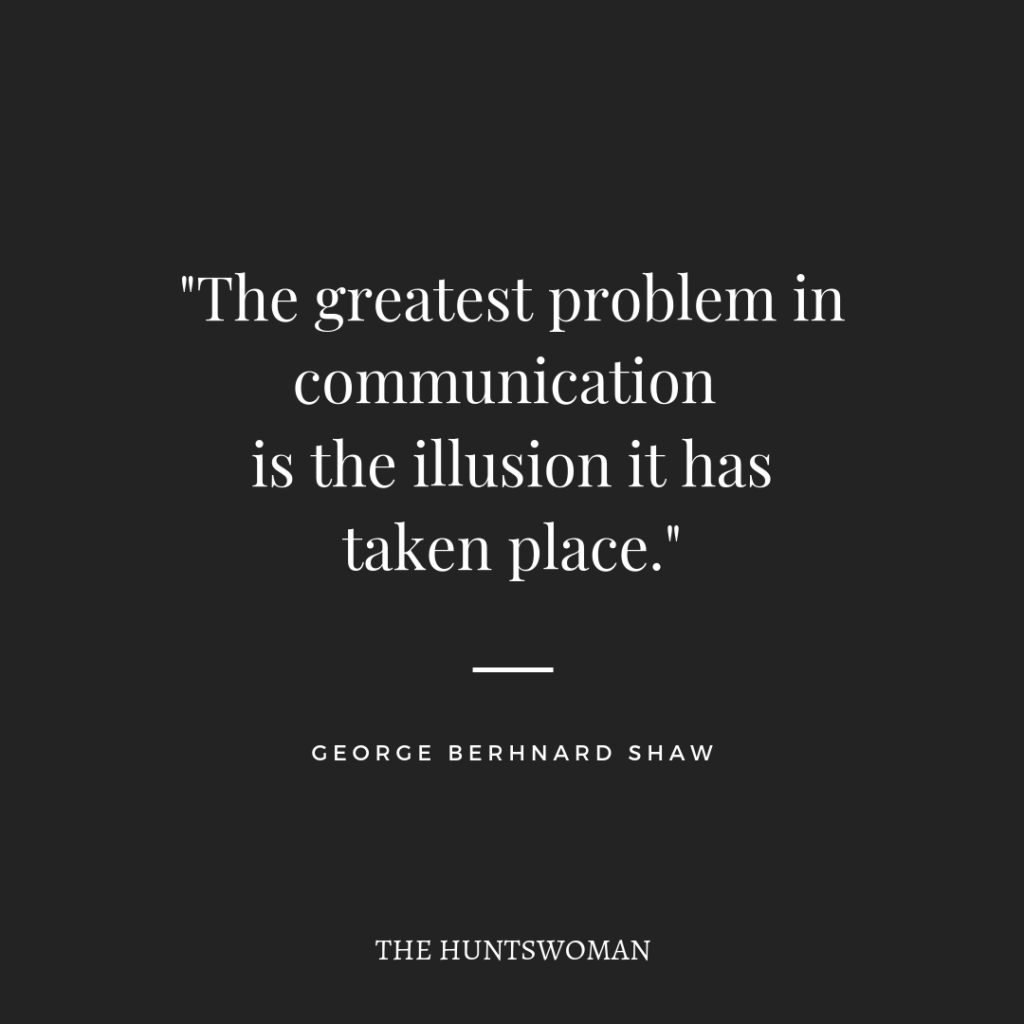
Learning to Be a Better Communicator
I’ve been working on becoming a better communicator over the last few years, and my quest has led me to read a metric fvck ton of personal development books.
I have learned a LOT from these books, and my favorite things to find are actual sentences and scripts I can use in my daily life.
Phrases I can use to raise my emotional intelligence? Let me grab my highlighter!!
Below, I’ve shared some of my favorite sentences for better communication, along with use cases. Not every phrase is a fit for every dang situation, so be sure to use these insights at the right time.
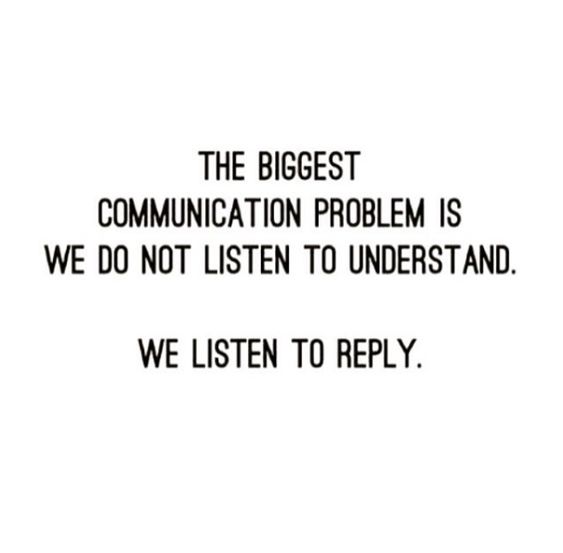
Sentence #1: “How would you like to be supported?”
Alternatively, “What can I do to make you feel more supported?”
When a friend is going through a tough time, this is my go-to sentence. It’s open ended and leaves the other person room to share exactly what they need. It makes it clear that you, the asker, are ready to do SOMETHING, but you want to be sure that your actions will be helpful – and are actually freaking wanted.
(If you’ve read “The Five Love Languages,” you’ve probably realized that this sentence allows for greater self-awareness. Not everyone feels loved/supported in the ways you express your love. Some people want you to clean their kitchen. Others just need a dang hug.)
Use this sentence to replace “Let me know if you need anything!” and watch relationships deepen.

Sentence #2: “What I hear you saying is ______________”
Have you ever been in a conversation where you feel like you PERFECTLY understand what a person is saying, only to find out later that you understood maybe, like, 5%?
Samesies, my friend.
This sentence allows you to sum up what the other person is saying, and it will also help you avoid costly miscommunication. I literally rephrase the issue or problem the other person has communicated, to make sure I’ve got a handle on it.
I use this sentence in situations with loved ones, “Okay, so what I’m hearing you say is that you don’t want to be in charge of the party this weekend, and you want me to organize it – with you as support?”
This is ALSO a great sentence to use if you feel like the other person is being a little, well, ridiculous with their demands: “Okay, what I hear you saying is that you’re mad I didn’t “just know” to pick up almonds at the grocery store. But how would I know that if you didn’t tell me?”
Using this sentence allows the other party to reexamine their expectations and get reallyyyyy clear on what they’re saying.
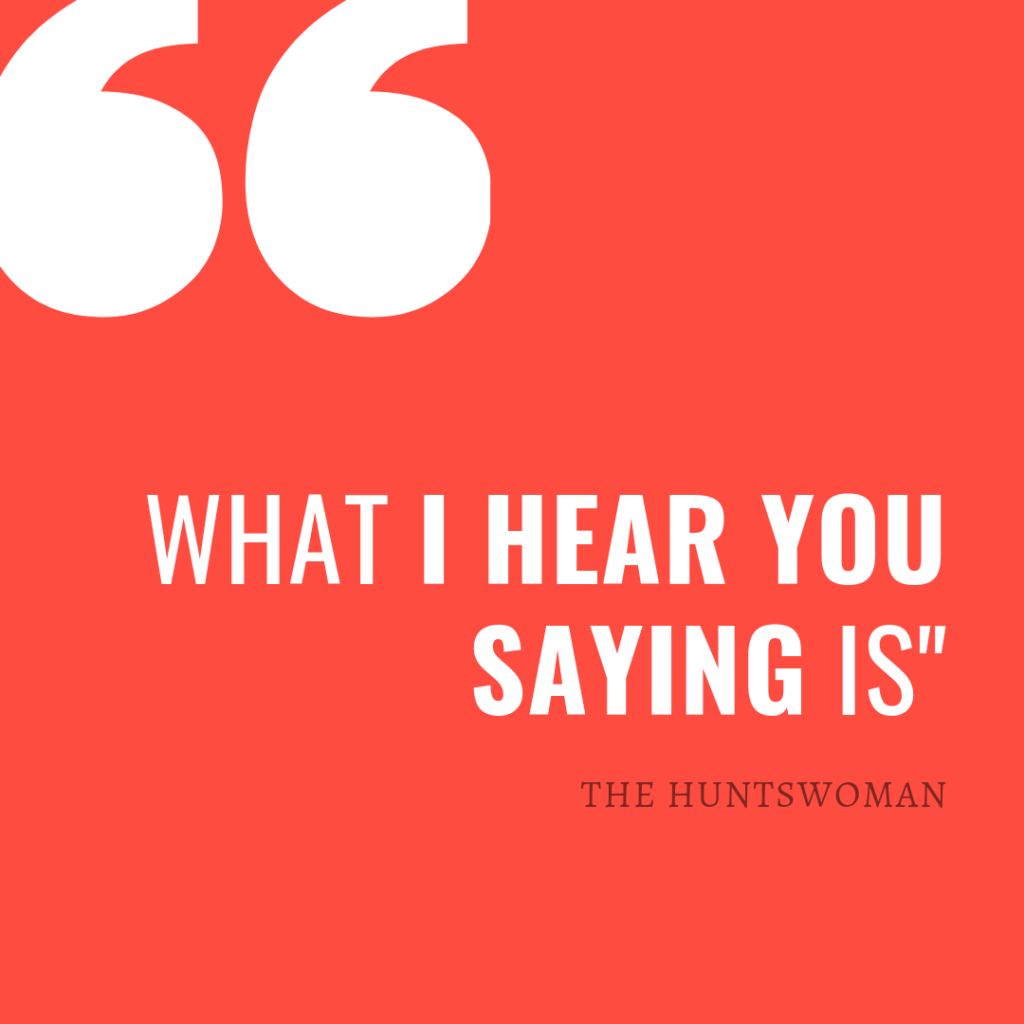
Sentence #3: “What would you do if you were in my situation?”
This sentence is a great question to ask someone who is offering you a variety of solutions or products. This can also be a great question to ask if you feel overwhelmed by options.
This is my go-to question when I’m trying to get actionable advice, from anyone from a call center agent to a medical professional.
Oftentimes, customer or client facing professionals are prevented in sharing the real honest 100% truth, due to the watchful eyes of their corporate overlords.
But if the question focuses on their experience (not yours) they’re often able to be more honest.
I learned this sentence from my mom, who when looking for a surgeon will ask a nurse, “If you were in my situation, would you choose Dr. ________ to operate on you?”
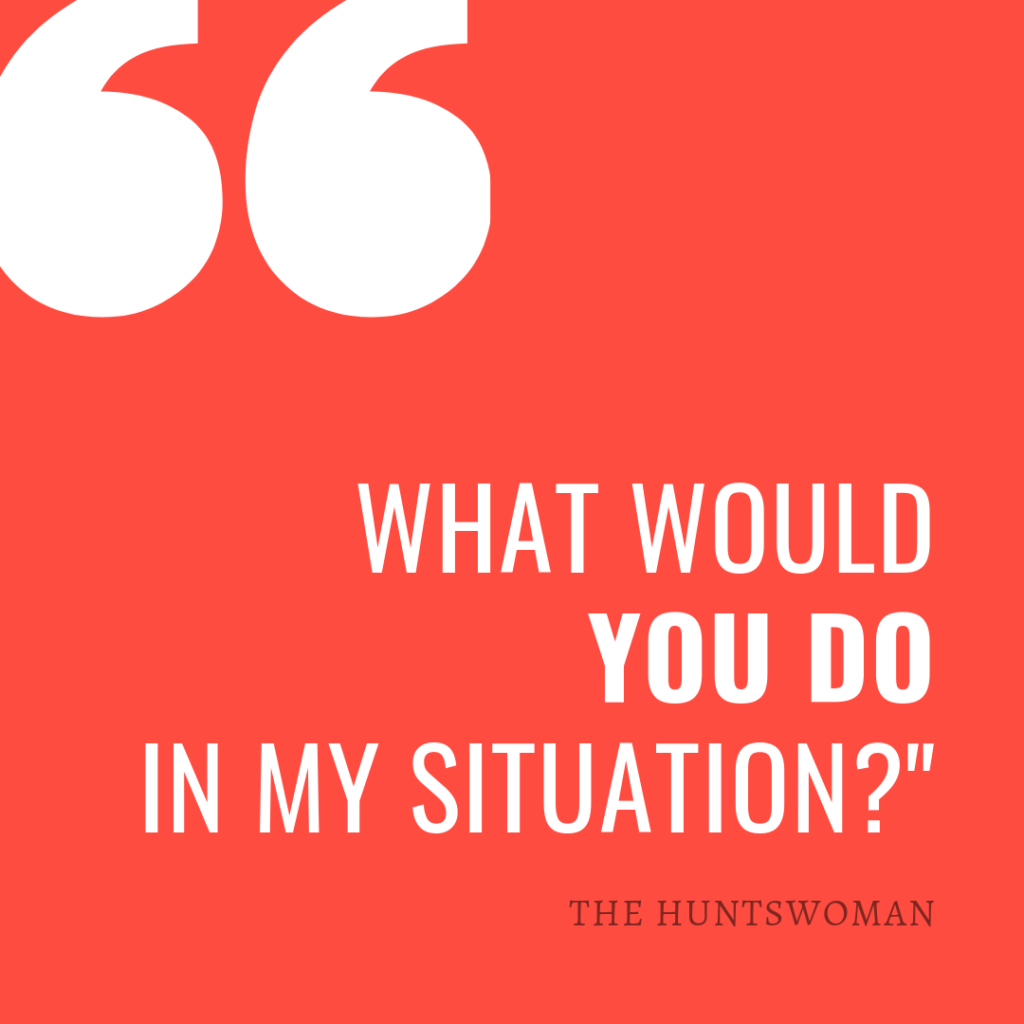
Sentence #4: “How do you see that working in the day-to-day?”
I do a lot of work with startups, and it’s REALLY easy for team members to throw out new initiatives – without considering who will make that initiative actually happen.
Who is doing the work??
But pointing that out can make someone seem a little Scrooge-like, so instead I ask the question, “How do you see that working in the day-to-day?” This makes others consider the availability of resources and the actual mechanism of how that initiative or project will happen.
Oftentimes after asking this, my startup client will say sheepishly, “Oh, I thought you would take care of it.”
To which I respond, “Okay, would you like to up the hours in my contract for this? Or should we examine my current workload and remove something?”
😉
(^You can have a similar conversation with a boss or manager!)
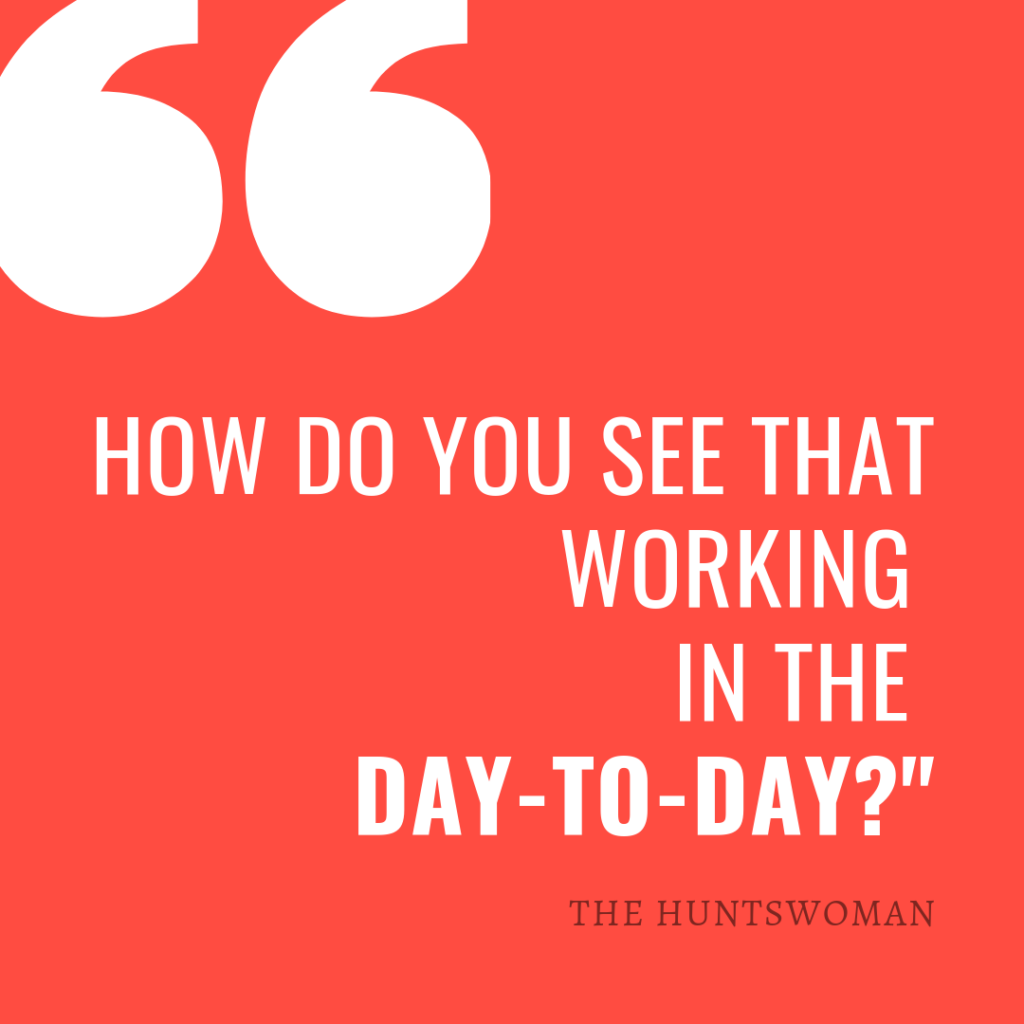
Sentence #5: “Who is taking ownership of this?”
Have you ever been told, “If there’s an accident, point to one person and tell them to call 911. Don’t scream, ‘Call 911!’ because everyone will think someone else people are calling.”
This sentence acknowledges the same issue. Sometimes at work (or in partnerships) all parties are aware of the issue, and they think that someone else is taking care of it.
Who is this “someone”? Nobody knows, but it certainly isn’t them!!
Asking this question assigns accountability and ownership, and posing it also saves you from being the one who takes on ownership by default.
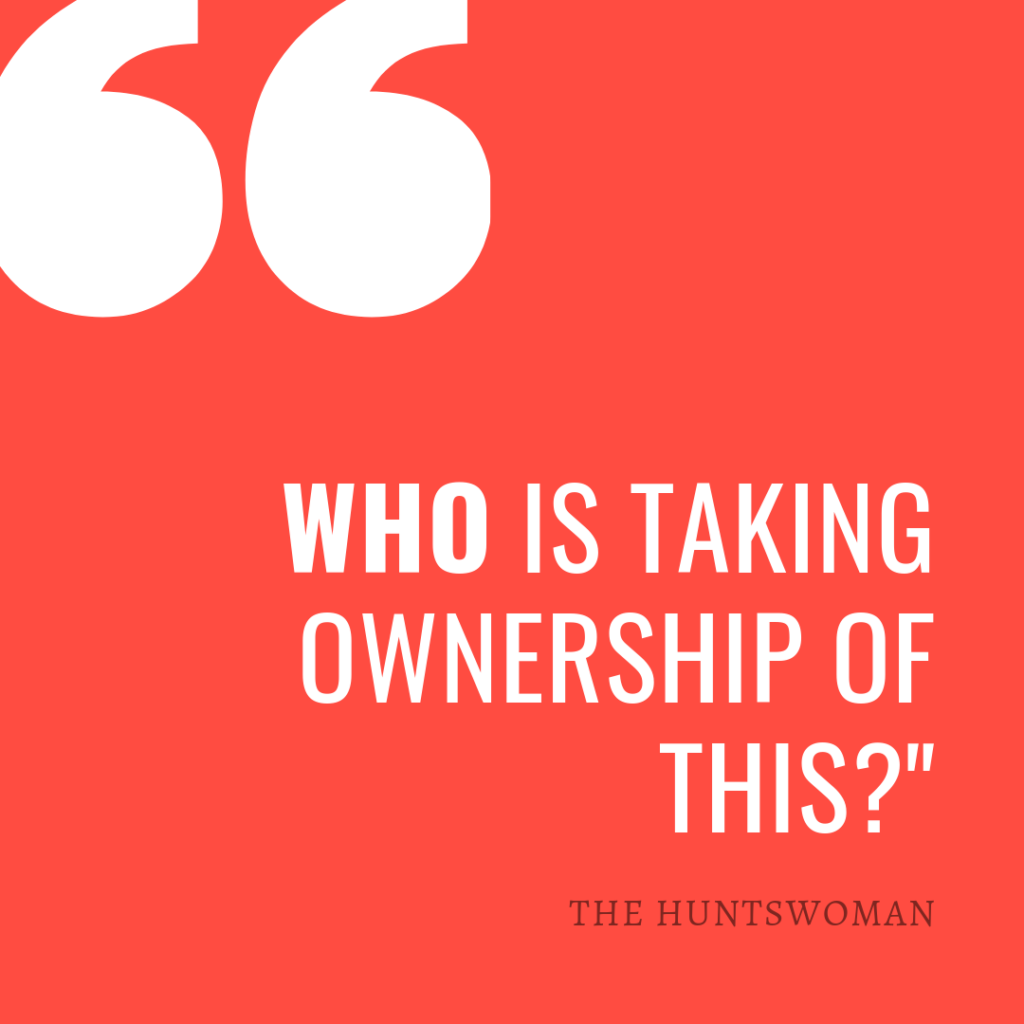
Sentence #6: “How might I do this?”
This is a question to ask yourself.
Have you ever felt really freaking overwhelmed, wanting to take on a new project – but feel like you lack needed experience in the New Shiny Thing you’re trying to accomplish?
Happens to me all of the dang time!
Instead of existing in overwhelm, ask yourself, “How might I do this?” Put another way, “If I did know what I was doing, what might I do next?”
It sounds like a “No duh” question, but don’t give in to the snark! Genuinely ask this the next time you’re freaked out and watch magical ideas and solutions pop in.
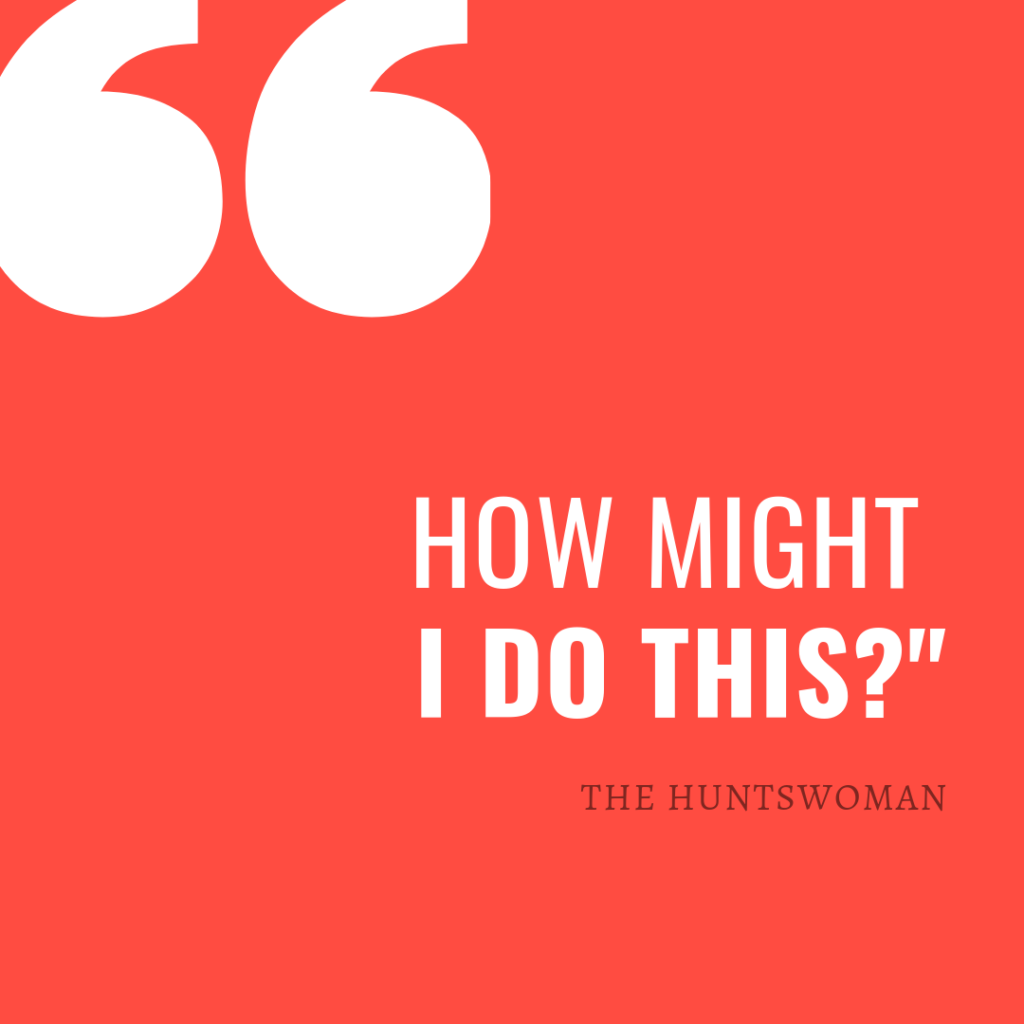
Sentence #7: “I’ve got this.”
The phrase, “I’ve got this” communicates that you, the person saying it, are taking full responsibility and ownership. I’ve said this to stressed out clients who tend to micromanage, and can’t quite let go.
I say it and look directly into the person’s eyes (if we’re talking face-to-face) or I say it deliberately over the phone.
I’ve got this. I totally got this. I am taking ownership of this situation or project. If I need help or direction, I’ll ask for it!
I also said it to my grandmother at a family reunion when she was worried about leaving early.
“I’ve got this,” I said. “You don’t need to spend energy on this. This is my thing to manage/remember/do.”
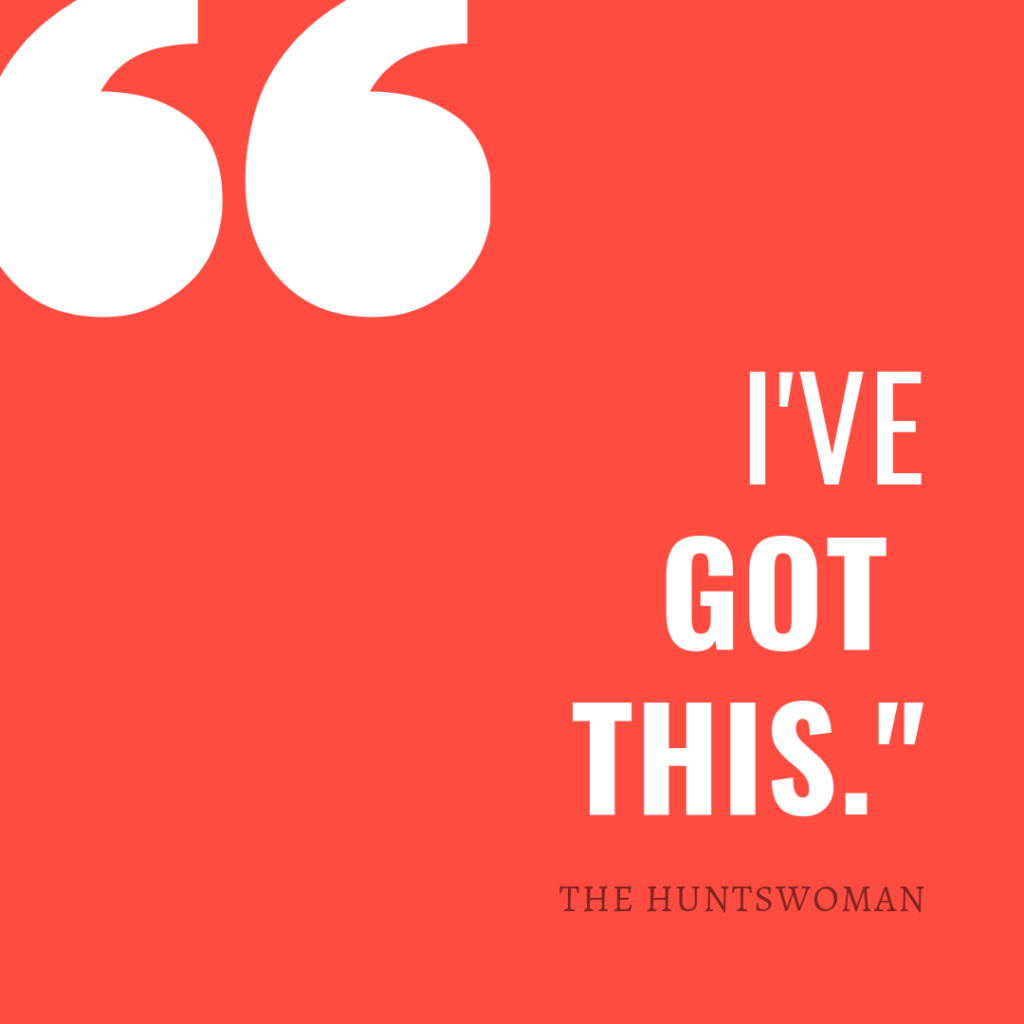
Sentence #8: “Tell me more about (that)”
I have a quick temper, and I’m tempted (on a daily basis) to respond with ire to dumbass comments or replies on social media. I start writing a response with VENGEANCE, but before I press send I pause.
Is this person really being a butthead? Or am I about to be the butthead?
Instead of flying off the handle, I ask for clarification. “Tell me more about your thoughts on US immigration policy” or “Tell me more about why social media ads don’t work.”
Stretch your curiosity muscles.
I remind myself to COME CURIOUS, and save my wrath for folks who truly deserve it.
9/10 I’m not operating with the full story, and coming curious allows the other party to give more needed information. I can either dissect that information and explain why they’re incorrect, or I can STFU because I actually agree!
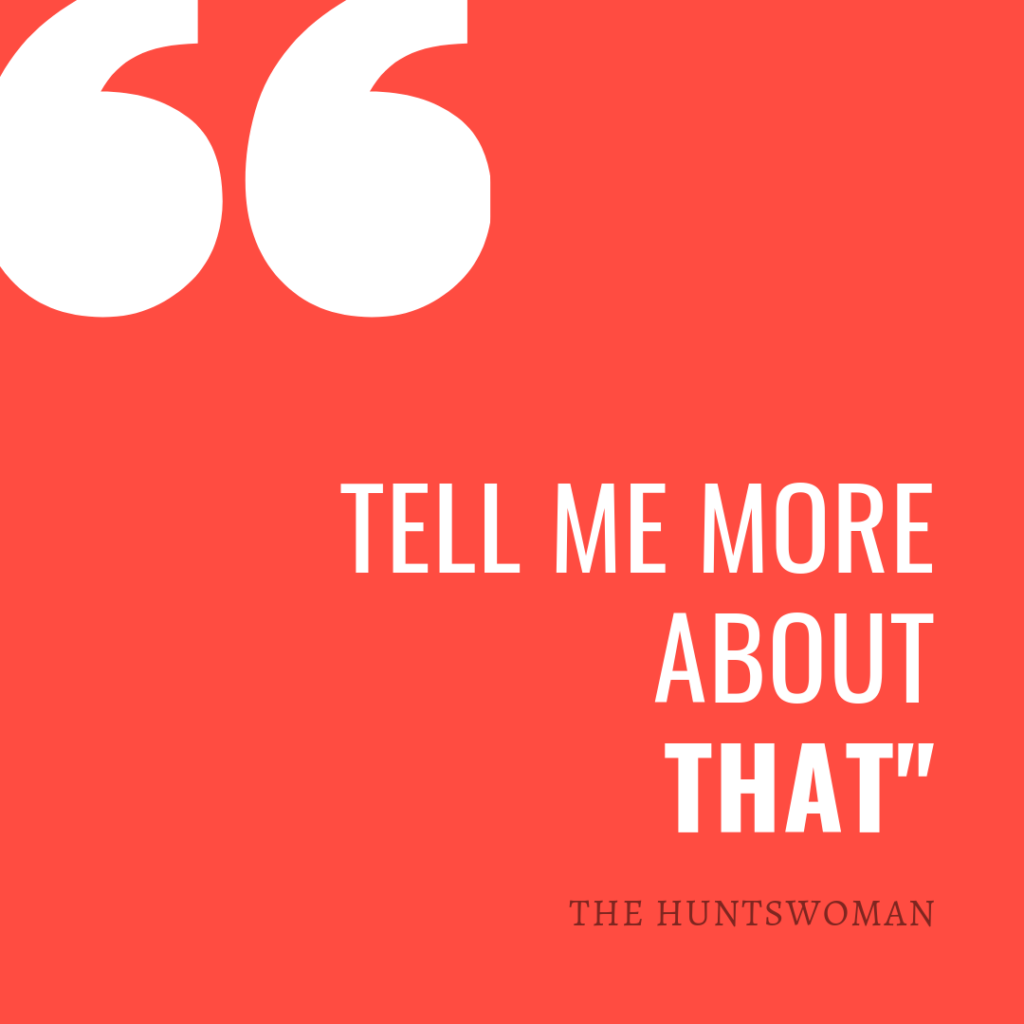
Sentence #9: “That hasn’t been my experience.”
Recently on my IG story, I asked y’all if you had friends or family tell you your dreams/goals weren’t possible. Most people said they have, and I shared some ways that I’ve found to rebuff or deal with unsupportive loved ones.
One reader asked me, “How do I politely tell someone to fvck off? I’m not interested in their opinion at ALL.”
To this, I bring you this sentence: “That hasn’t been my experience.” Use this handy dandy sentence when someone tells you that you’ll likely fail (because their cousin Doug failed at this exact thing you’re trying to do), or when people aren’t being supportive.
This sentence is super fun to use, because you’re referecning your OWN DANG EXPERIENCE. And because your experience is unique to you, nobody can argue with it. It’s YOUR experience.
Boom. Done. Next!
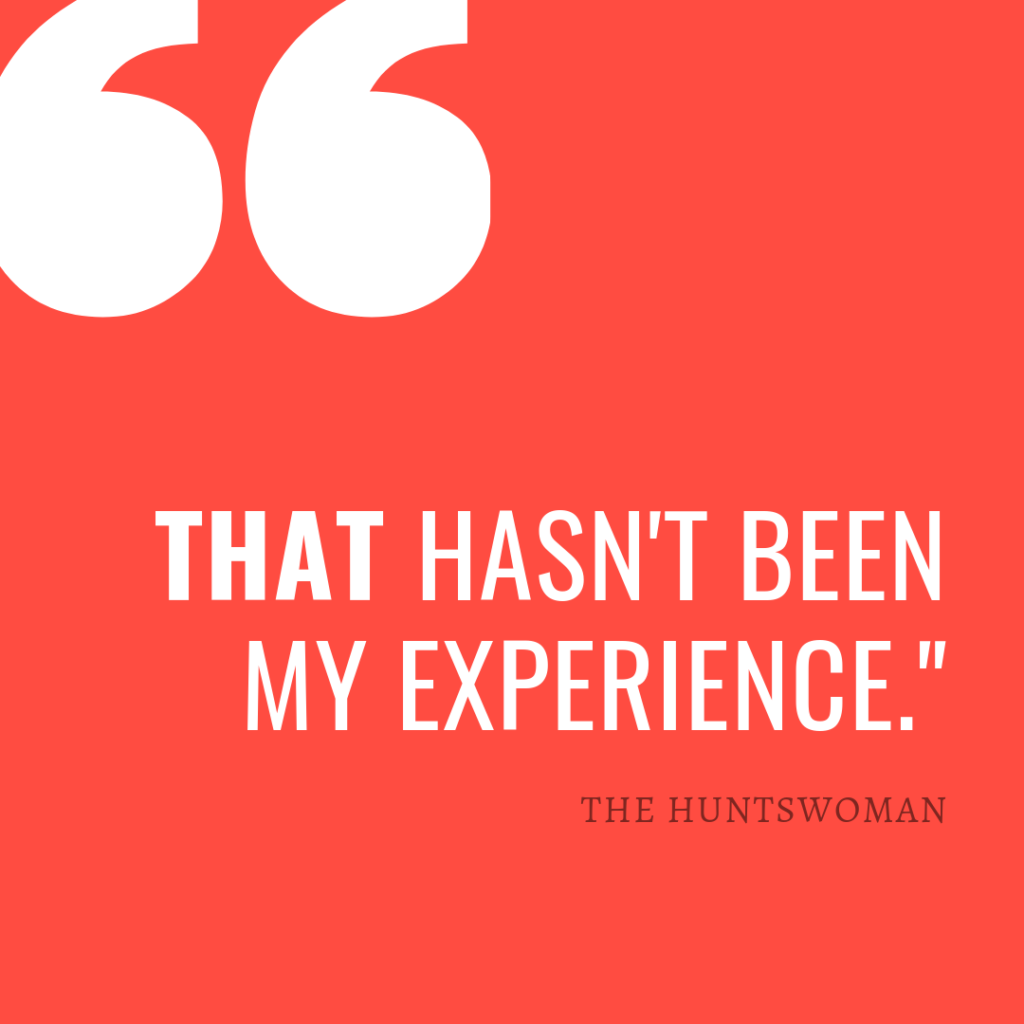
Sentence #10: “Would you disagree?”
I know we just went over how to make someone shut up, but there are frequently times where you WANT the other person to share their true opinions.
“Would you disagree?” is my go-to sentence when speaking with people who are more introverted or feel reticent about giving an opinion or negative feedback. I use this sentence when I *need* feedback from these folks, and I want to avoid bulldozing them.
“Would you disagree? I’m open to new perspectives!” gives others the ability to disagree with you, without worrying about hurting your feelings or ego.
Also, notice it’s “WOULD” not “DO”!! The latter is too confrontational. Keep it open ended.

Sentence #11: “Is that a complete recap?”
Do you ever feel like you’re getting half the story? It’s the worst. Calling someone a liar-pants for omitting information is fun for a moment – but ultimately not effective.
Instead, say: “Is that a complete recap? I feel like I’m missing something here.”
This allows the other person one last chance to give the details they’re holding onto, before you move into pantalones en fuego territory.
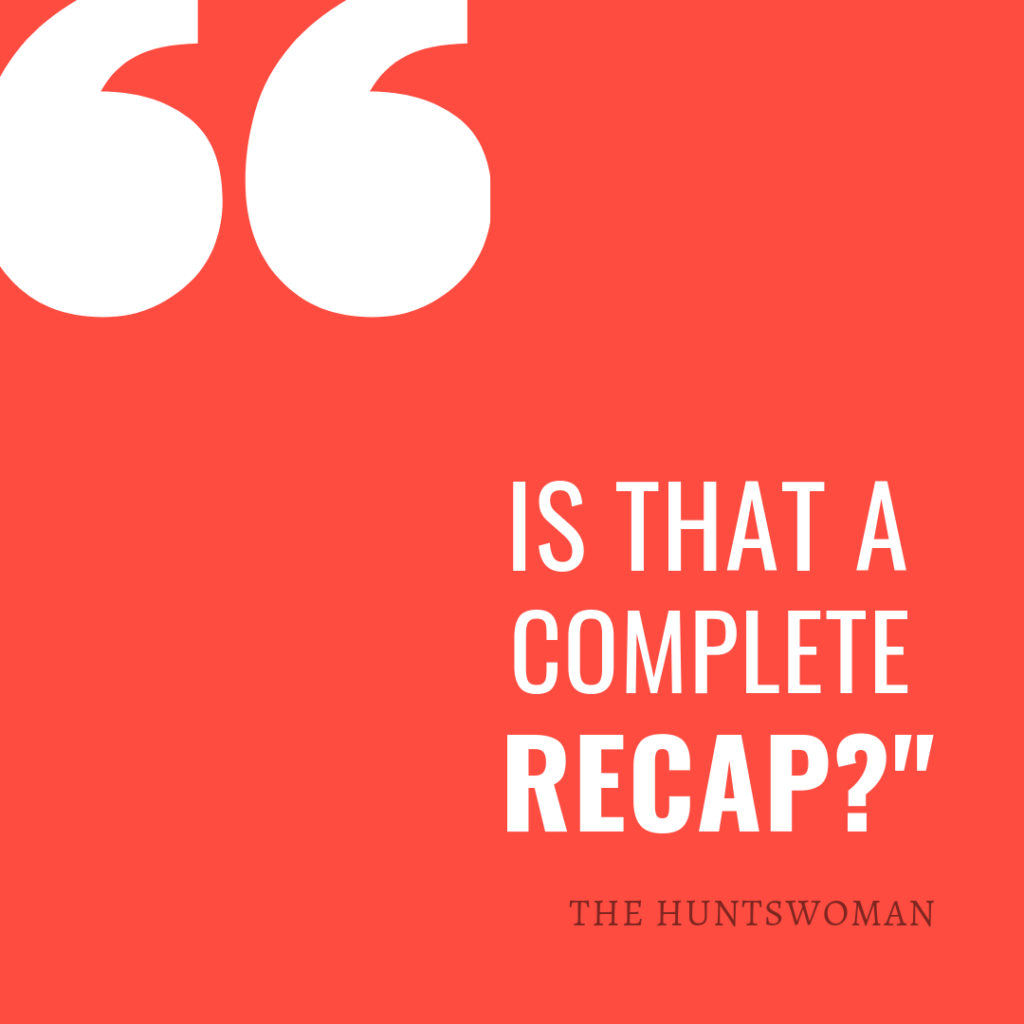
Sentence #12: “I’m not interested in continuing this conversation.”
While you probably shouldn’t use this sentence with your boss or the person signing your check, this can be a powerful sentence when dealing with people who just won’t let a topic drop.
After sharing this, I recommend physically going elsewhere or exiting the chat to avoid getting dragged back into the thick of things.
It’s a badass communication mic drop.
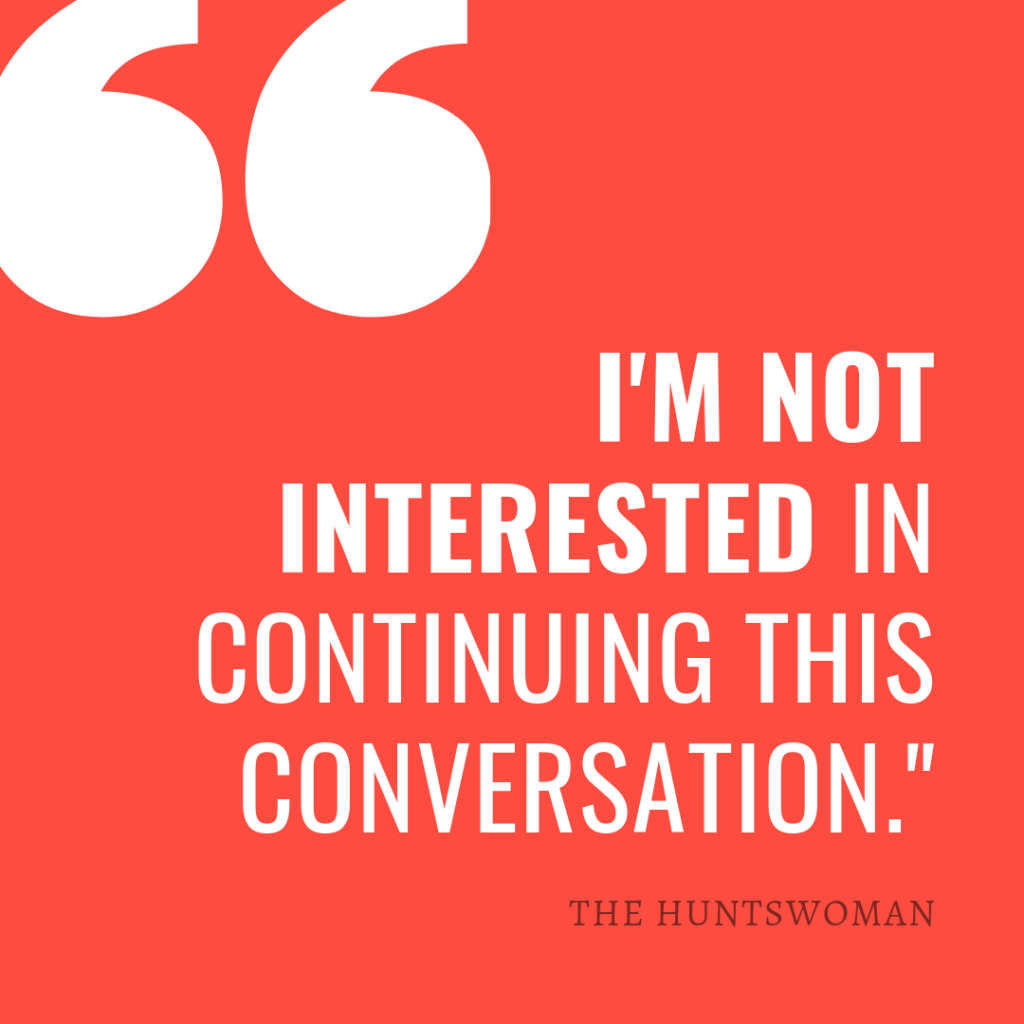
BONUS #13: Pause for a Full Five Seconds. Or Hours. Or Days.
When asked my opinion on something, I immediately have one. I make decisions decisively and move TF on.
However, not everyone is this way. Some people need you to shut up for a full 5 seconds (count “Mississippis”) for them to reply. Some people need a certain amount of time to make a decision or form an opinion.
Give it to them whenever possible. Get a deadline on when you’ll followup and make a decision.

Ready to Level Up Further?
Here are a few titles that have helped make me a better communicator:
- How to Win Friends & Influence People
- The Five Love Languages
- Crucial Conversations: Tools for Talking When Stakes Are High
Finally.
I’d love to hear what phrases you use for better communication! Share your insights below or on Twitter!
Want more personal development content? Be sure to subscribe to The Huntswoman Newsletter.
[FTC Notice: This post contains affiliate links, meaning I earn a small commission if you purchase a product through my link. Affiliates help me write more great content, and I only endorse products I truly love.]












